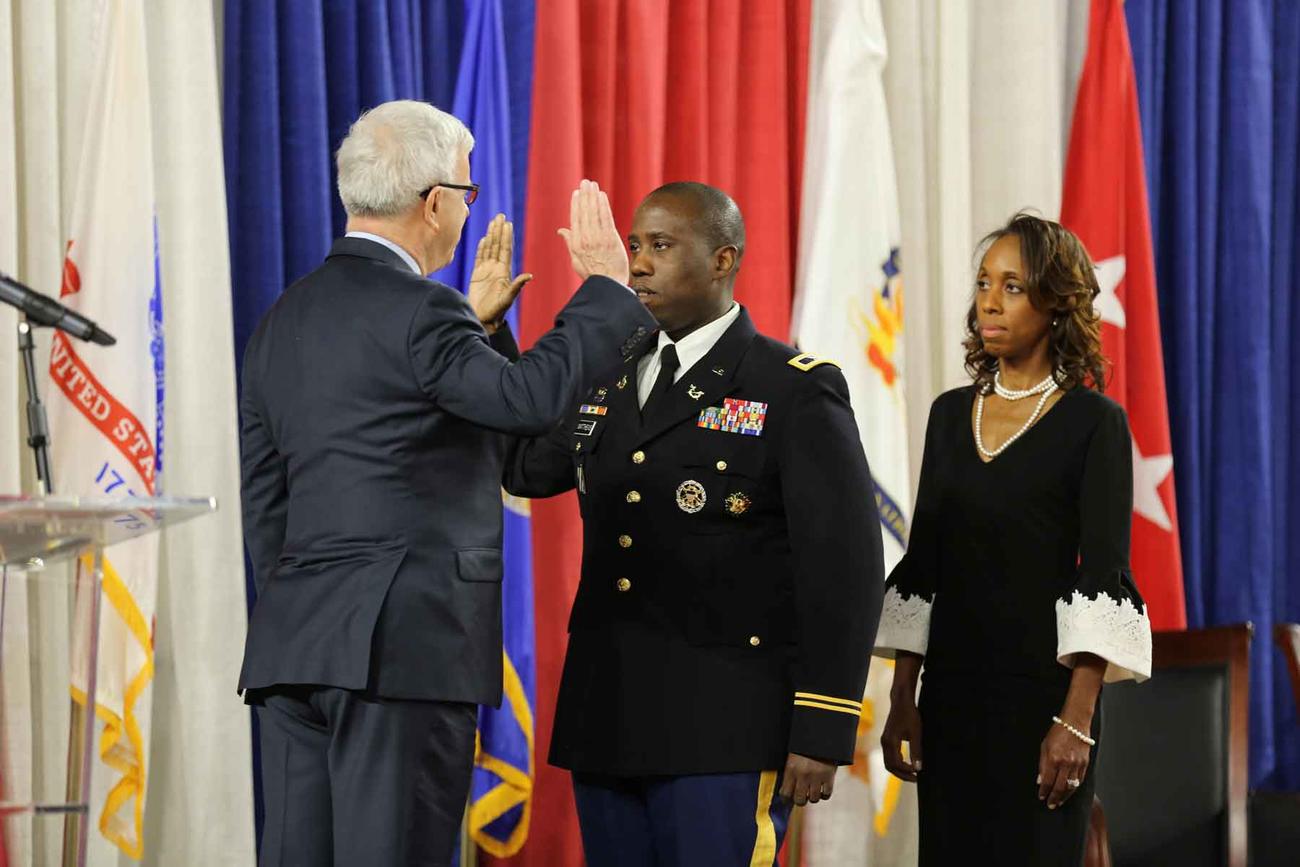
A colonel who was the top lawyer for the D.C. National Guard during the Jan. 6, 2021, insurrection is accusing Army officials of retaliating against him for disputing two generals’ account of why the National Guard was slow to deploy during the attack on the Capitol.
In a whistleblower reprisal complaint filed in October and made public this week, Col. Earl Matthews, now a member of the Army Reserve, alleged he was passed over for promotion and publicly kicked out of a conference he was assigned to for work in retaliation for testifying to Congress that two Army generals were “absolute and unmitigated liars” in how they described the military’s response to the insurrection.
“The retaliatory actions taken against Col. Matthews are a textbook example of the vice [the whistleblower protection law] was intended to both remedy and deter,” his lawyers wrote in their complaint on his behalf to the Defense Department.
Army spokesperson Cynthia Smith declined to comment directly on Matthews’ complaint, which was first reported by The New York Times, because it is an “ongoing action.”
But Smith added that “the Army’s actions on January 6th have been well-documented and reported on” and that Army officials “stand by all testimony and facts provided to date, and vigorously reject any allegations to the contrary.”
During the Jan. 6 insurrection, in which supporters of then-President Donald Trump overran the Capitol in an attempt to prevent lawmakers from certifying President Joe Biden’s victory in the 2020 election, the National Guard took more than three hours to deploy to help besieged Capitol and D.C. police officers regain control of the building.
Both a Pentagon inspector general report and a report from the House committee that investigated the Jan. 6 attack concluded that no Pentagon officials deliberately delayed the deployment. But debate and disputes over the exact events in the Pentagon that day continue to rage.
After the inspector general’s report was released in November 2021, Matthews sent a memo to the House Jan. 6 committee and a Senate committee accusing two Army officers of misleading both the inspector general and Congress.
At the heart of the dispute is whether Lt. Gen. Walter Piatt and Gen. Charles Flynn delayed deploying the Guard over concerns about the optics of sending troops to the Capitol. Piatt is the director of the Army staff. Flynn, who is now the commanding general of U.S. Army Pacific, was a deputy chief of staff at the Army at the time. Flynn’s brother is Michael Flynn, a retired lieutenant general who was one of the Trump allies who pushed for the military to seize voting machines after Biden won the election.
Local D.C. officials and D.C. National Guard officials have testified Piatt and Charles Flynn expressed concerns about optics during a frantic phone call on Jan. 6 where D.C. and Capitol officials pleaded for help. Piatt has denied ever using the word “optics,” but he acknowledged to the Jan. 6 committee that he believed using the Guard was “not my best military judgment or my best military advice.” Flynn testified he didn’t participate in the call but was fleetingly in the room.
“Gen. Flynn and Lt. Gen. Piatt have been open, honest and thorough in their sworn testimony with Congress and DoD investigators,” Smith said in her emailed statement.
But Matthews’ December 2021 memo to Congress accused the two officers of providing “perjured testimony.”
Since sending the memo, Matthews hasn’t been promoted despite a promotion board recommending in November 2022 that he be promoted to brigadier general after finding he was among the “best qualified” of a group of reserve colonels, according to his whistleblower reprisal complaint. The board’s recommendation “displeased several senior officers within the Pentagon and the Office of the Chief of the Army Reserve,” the complaint alleged.
Additionally, the complaint alleged that Army officials had security escort Matthews out of a hotel in February after falsely accusing him of being disruptive at a seminar at the hotel. Matthew was assigned to the seminar as part of his reserve duty, and removing him early resulted “in the loss of military pay and reserve retirement points,” the complaint said.
“What plausible reason could there have been to remove a senior colonel, with an unblemished record of service, under such circumstances, except as reprisal for protected disclosures that negatively impacted a serving general officer who had responsibility for the War College?” the complaint said. “There is none.”
The complaint asked for Matthews to be promoted to brigadier general and for those who retaliated against him to be reprimanded or otherwise disciplined.
“If public confidence in the integrity of government operations is to be restored,” the complaint said, “he must be made whole and the responsible officials appropriately disciplined.”
Related: Guard Deployment Wasn’t Intentionally Delayed on Jan. 6, House Committee Finds









